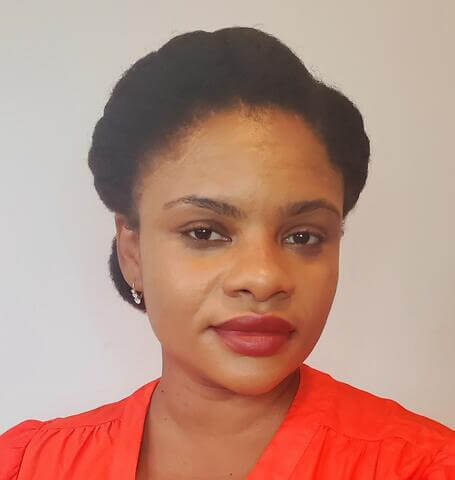Did You Know
DR. NATHALIE FRÉDÉRIC PIERRE RECEIVED THE MELLON FOUNDATIONS' NEW DIRECTIONS FELLOWSHIP
By India Crowe
The year 1804 ushered in a revolution beyond territory and class. The triumph of the Haitian Revolution galvanized ideas of sovereignty and liberation across the Atlantic world, inciting a revolution of ideology, politics, and consequently, law. Before this revolution fully materialized, the independent Haitian state was exploited and extorted. Assistant Professor of History Dr. Nathalie Frédéric Pierre intends to explore Black governance during the 19th-century in contrast to modern-day legislation as a recipient of the Mellon Foundation New Directions Fellowship for her forthcoming book, The Vessel of Independence Must Save Itself: Haitian State Formation, 1757 - 1815. New Directions Fellowships assist faculty members in the humanities and humanistic social sciences who seek to acquire systematic training outside their own areas of special interest. Pierre will be pursuing legal education that will sharpen her ability to analyze 19th-century Haitian legislation.
The Sway (TS): Please explain your project and plan for this fellowship.
Nathalie Pierre (NP): The Mellon Foundation awarded me a New Directions Fellowship to pursue a legal education that will sharpen my ability to analyze 19th-century Haitian legislation through Critical Race Theory (CRT). My project, “Equity Initiatives in Black Law: A Critical Race Theory Analysis of 19th-Century Haitian Legislation,” examines how Haitian lawmakers, many formerly enslaved, crafted laws to govern a Black nation while contending with the legacies of slavery and colonialism. CRT teaches that law is a site where race and power intersect, shaping legal structures that have predictable political, economic, and social outcomes. While U.S. lawmakers earnestly embedded white hegemony into law, Haitians were busy writing equity into the nation’s legal blueprint. In contrast to U.S. legislation, which codified racism through exclusionary laws, Haitian lawmakers pursued the opposite goal. My project explores this inverse legal trajectory, showing how Haiti’s legal foundation challenged dominant racial ideologies.
TS: How is your topic relevant to current times? Why does this specific story deserve to be told?
NP: This topic is deeply relevant today. In contemporary debates, Critical Race Theory has been widely mischaracterized as a radical or revisionist approach to law. I think it can be used to render visible legal traditions developed by Black people who were tasked with undoing slavery’s harm. One law, for example, mandated state fiscal responsibility for the unborn children of revolutionary war heroes—a provision that speaks to how legislators who had once been enslaved codified a duty of care into law. How wonderful, right? However, I now realize that I need a deeper legal education to fully engage with the complexities of 19th-century legislation—its structures and logic. This fellowship allows me to refine that aspect of my research while expanding our imagination of how Black people sought to govern with care.
TS: Who are your inspirations/role models, academic or personal?
NP: Amelia Bedelia—because as a bilingual speaker, homonyms never fail to crack me up. Then there’s my Big Three: Baby Esther—the original Betty Boop, a reminder that Black creativity is often stolen but never erased. Toni Morrison—THEE G.O.A.T., the master wordsmith. W.E.B. Du Bois—who teaches us to be cold-blooded with our scholarship.
TS: What does the study of history mean to you? What is its significance and role in society?
NP: History allows us to touch the past; it can be metaphysical if you let it.
TS: How and when did you know you wanted to pursue this field? Any fond memories of your studies?
NP: Looking back, my willingness to stay up all night and wake up early to study “dead” topics was the first sign of where I was headed. As an immigrant and the first in my family to graduate college, the idea that professors get paid to read, write, and talk about these ideas with brilliant students still feels wild to my native New Yorker self. I’m a proud alumna of Howard University, where I earned BAs in Literature and Writing (formerly the Department of English) and History—the very department where I now teach. My top three moments? Pulling all-nighters with my English major friends, organizing with the Kwame Ture Society, and a 6 AM independent study on Du Bois.
TS: Any general career advice for others?
NP: Lean into what you geek out about. Dont’ feel too pressed about choosing your major; focus on doing your best. When you all were in elementary school, there was no such thing as an “influencer.”

